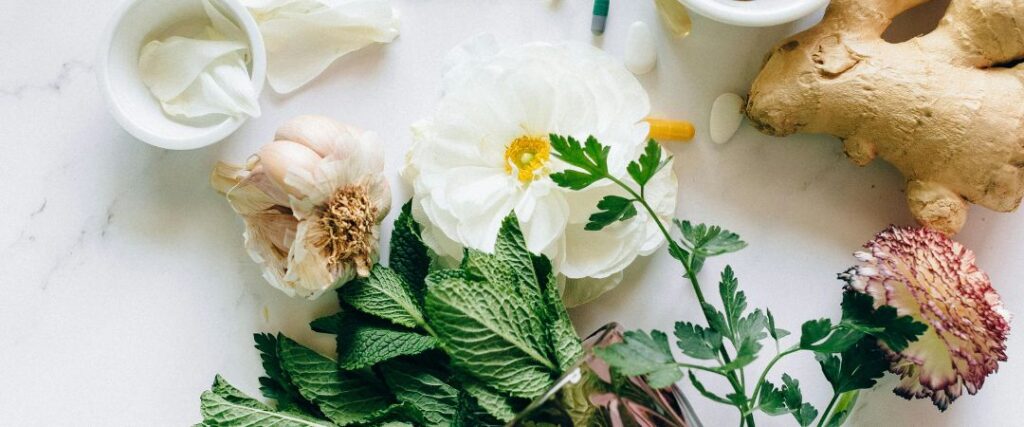Anxiety

using chinese medicine to treat Anxiety using chinese medicine to treat anxiety “I’ve had many patients with tons of chaos in their lives that was, of course, reflected into their physical body (digestive complaints, migraines, pain). As a therapist, trying to work through all of that can be challenging. When I’ve sent them to the team at Tao to Wellness, they started feeling better physically almost immediately, which made their emotional state more flexible to change, which got them faster results with me. I’m so grateful to the ladies at Tao to Wellness.” – Berkeley psychotherapist Chinese medicine works on all levels; the physical, mental, emotional and spiritual. To us, all these are not just interconnected but rely on each other for solid health. People are sometimes surprised that acupuncture and Chinese herbal medicine can work in the realm of emotional wellness. We actually work with all types of emotional fluctuations, not only anxiety, but depression, sadness, grief, heartbreak and fear to name a few. Utilizing Chinese medicine to support emotional wellness can enhance a patient’s life in many ways because we take into consideration the whole body, we look at the physical, the mental and the emotional. We are thorough in discovering your story and discussing at length your current health and past medical history. We also utilize diagnostic tools like the tongue and the pulse. All of these things help shape your unique treatment plan. Let’s take a deeper look, anxiety can manifest from different organ systems being out of balance, but mostly it stems from an acute imbalance of the Heart, but the imbalance is actually caused by other organ systems. The Heart regulates circulation, and is also the ruler of all mental and emotional processes. Because the body is interconnected, balancing only the Heart is not enough. For example, if the Liver is involved perhaps a patient has anger or irritability that essentially heats up the Heart, in turn causing the anxiety. If there is Spleen involvement, possibly there’s excessive worry or pensiveness that causes unrest in the Heart. And lastly, if a patient is constantly operating from a place of fear, it could very well be the Kidneys that are not communicating effectively with the Heart. Sometimes there’s just one scenario, sometimes all three are at play. Commonly, our anxiety patients possess additional symptoms as well. So again, what happens over time is the anxiety creates an imbalance, the long term imbalance of that organ creates other symptoms, making this imbalance louder. Let’s say the patient is experiencing a Heart and Liver imbalance– some additional symptoms that might occur are insomnia or trouble sleeping deeply, headaches especially along the Gall Bladder channel, PMS or menstrual cramps to name a few. And vice versa, let’s say a patient who has been experiencing a Heart imbalance with daily palpitations and dizziness, might start to have anxiety because of it. Thankfully with acupuncture and Chinese herbal medicine when we rebalance the organ, this diminish all the emotional and physical symptoms. How can acupuncture and chinese herbal medicine benefit? Brain chemistry stabilization Decrease in stress and cortisol Enhanced circulation to the Heart (the Ruler of Emotions) Decrease in inflammation overall, which relaxes the body and enhances flow of Qi and blood. An optimally functioning physical body that allows the emotions space to release, balance and heal. An additional practice that we love to incorporate with our patients is meditation. Quieting our “monkey mind” is key in any emotional balancing. Our minds are going a mile a minute with noise, replaying old conversations, rehearsing future conversations, strategizing life’s details, planning days, months, vacations, being upset or hurt about something that happened days or even months ago. We are also worried, fearful, annoyed, frustrated etc. Our minds never stop. Meditation can be a cleanse to your thoughts, a retreat from the noise and a way to train yourself and your reactions. If you are curious about how we can help, feel free to make an appointment or book a complimentary consultation. Book An Appointment
Understanding Anxiety: Signs, Symptoms, and Support

Understanding Anxiety: Signs, Symptoms, and Support Anxiety is more than just feeling nervous before a big event; it’s a complex mental health condition that affects millions of people around the world. Understanding its signs and symptoms is important in recognizing and addressing this silent struggle. Knowing the signs of anxiety helps us notice when someone might be struggling quietly. By understanding and acknowledging these signs, we can offer support and help them find ways to cope and feel better. What is Anxiety? Anxiety is a natural human response to stress or sensed danger. However, it can disturb daily activities and routines when it becomes intense or overwhelming. People who have anxiety disorders often struggle to manage their worries, which can cause them distress and make it hard for them to live their lives normally. Identifying Anxiety Symptoms – What to Watch Out For The first thing to do if you think you have anxiety is to notice how your body feels. Some common signs are: Feeling tense or nervous always, even without an apparent reason. Symptoms such as rapid heartbeat, sweating, trembling, and shortness of breath can accompany anxiety. Anxiety can make it difficult to concentrate on tasks or make decisions. Having a hard time falling asleep or staying asleep is common with anxiety. People experiencing anxiety may avoid situations or activities that make them anxious. The Interplay Between Anxiety and Depression Anxiety often coexists with depression and can make each other worse. This creates a challenging loop where anxiety can deepen feelings of sadness, and depression can intensify worries. Understanding this connection is important to figure out how to feel better and break out of this tough cycle. Thankfully, some things help in treating anxiety and depression, which include: Acupuncture: Acupuncture is recognized as one of the most effective treatments for anxiety and depression. It helps to restore balance and promote well-being, providing relief from symptoms and promoting mental wellness. Therapy: Cognitive-behavioral therapy (CBT) is a commonly used form of therapy for anxiety and depression. It helps you change negative thoughts and deal with tough situations better. Medications: Antidepressants and anti-anxiety medications can help alleviate symptoms of both anxiety and depression by balancing neurotransmitters in the brain. Change in Lifestyle: Engaging in regular exercise, practicing relaxation techniques such as deep breathing or meditation, and maintaining a healthy diet can help you manage anxiety and depression. Acupuncture: An Alternative Approach to Managing Anxiety In addition to therapy, many choose acupuncture as an adjunct modality. Acupuncture, an ancient Chinese practice, involves inserting thin needles into specific points on the body to restore balance and promote well-being. It is known for helping your body release natural pain relievers and making you feel deeply relaxed. While ongoing research continues, studies strongly indicate that acupuncture is effective as one of the best treatments for anxiety. Finding Relief Anxiety is a common mental health issue, but it’s often misunderstood. It can really affect how you live your life every day. If you’re experiencing symptoms of anxiety, don’t hesitate to reach out for support. At Tao to Wellness, we offer comprehensive acupuncture treatments tailored to your needs to enhance your well-being and emotional wellness. Our holistic approach considers not only your current symptoms but also your overall health and vitality.





